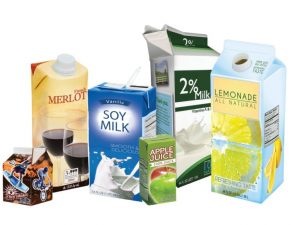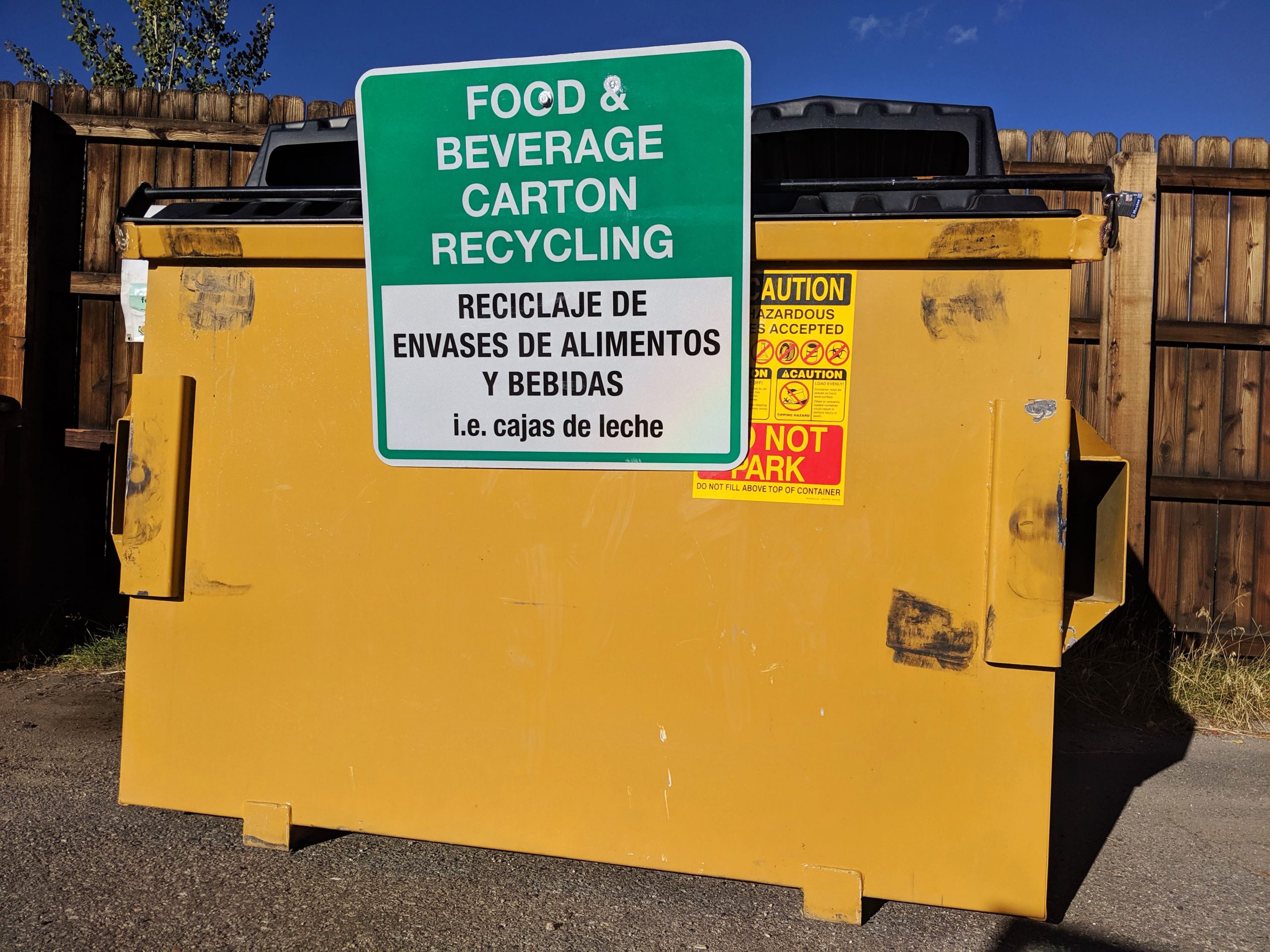- Vitalii Homon
- July 9, 2021
- Ask Eartha
Dear Eartha, I’ve noticed that there is a new container at the drop-off centers for food and beverage cartons. How can I tell what is a recyclable carton? Do these cartons actually get recycled and what are they being used for? -Riley, Dillon
Thanks for bringing your confusion to my attention. I’m delighted that locals can now recycle these food and beverage cartons at the Breckenridge and Frisco recycling centers. Recyclable cartons accepted at the drop-off centers typically hold plant-based milks, pourable egg whites, individual servings of juice, shelf-stable milks, even boxed water and boxed soup!
You might mistake some things as cartons, but remember – coffee cups, ice cream containers, egg cartons, Styrofoam and plastics are NOT accepted in these new bins. I’ll clear up the confusion for you and let you know the afterlife of these recyclables.
 Cartons accepted in the new drop-off center bins
Cartons accepted in the new drop-off center bins
Cartons are made primarily from paper, with a unique plastic lining. Shelf-stable cartons also contain a layer of aluminum. These two special linings help ensure a safe and preserved product. Because of these cartons’ unique paper fiber composition and their special linings, other look-a-like materials (like ice cream tubs) can’t be recycled alongside them.
You’ll see cartons with flat tops or slanted gable tops (think those that look like a building with a roof). The flat top cartons usually contain juice (small juice boxes), broth, soup, coconut water, or wine on the store shelf. Gable topped versions are typically home to milk (dairy or plant-based), creamers, egg substitutes and juice that you’d find in the refrigerated section. Both types of cartons often have a plastic cap, however sometimes gable tops open by pushing up the “roof” and creating a spout – like milk cartons you probably drank at your school’s cafeteria.
When considering recycling something in the carton container, stick to the image here – cartons are all box-like and have either a flat or gable top. They don’t have “lids” but rather small caps, or in some gable top cases, just a do-it-yourself spout.
Not accepted
Remember those items you might mistake as cartons? Coffee and hot beverage cups, other to-go cups like those used for soda, take out containers whether Styrofoam or paper, ice cream tubs, Tupperware, egg cartons, and cylindrical oatmeal containers are not accepted in the new bins. Some of these really do resemble cartons, but remember to look at the top. None of these have a cap and/or gable top “roof” like a carton always will. (You can, however, drop your paper egg cartons in the cardboard and paperboard bin.)
When recycling cartons, remove caps and straws, which can get tangled up in recycling machinery and can’t be processed in the same manner as the cartons. Be sure to rinse before recycling, too.
New life for the cartons
Once the bins at the drop-off centers are full, the cartons are taken to the Summit County Resource Allocation Park, where they are bundled together and sold. From there, a recycling company shreds the cartons, applies heat and presses everything together (think panini press!) into a big sheet. Those sheets become ceiling tiles or wallboard, an alternative to drywall. About 30 cartons turn into a single two-foot-square ceiling tile, and about 400 cartons make up each wallboard.
I hope this helps clear up some of your confusion. And, I hope you’ll remember the most important tip to identify a food and beverage carton: look for the little caps or gable-top roof!
While cartons are not accepted in single stream — the mixed recycling collected at homes and offices — I’m excited Summit County now offers carton recycling at the drop-off centers. I hope to see you out there recycling yours. If you have more questions on recycling, head over to HighCountryConservation.org or give them a call at 970-668-5703.
